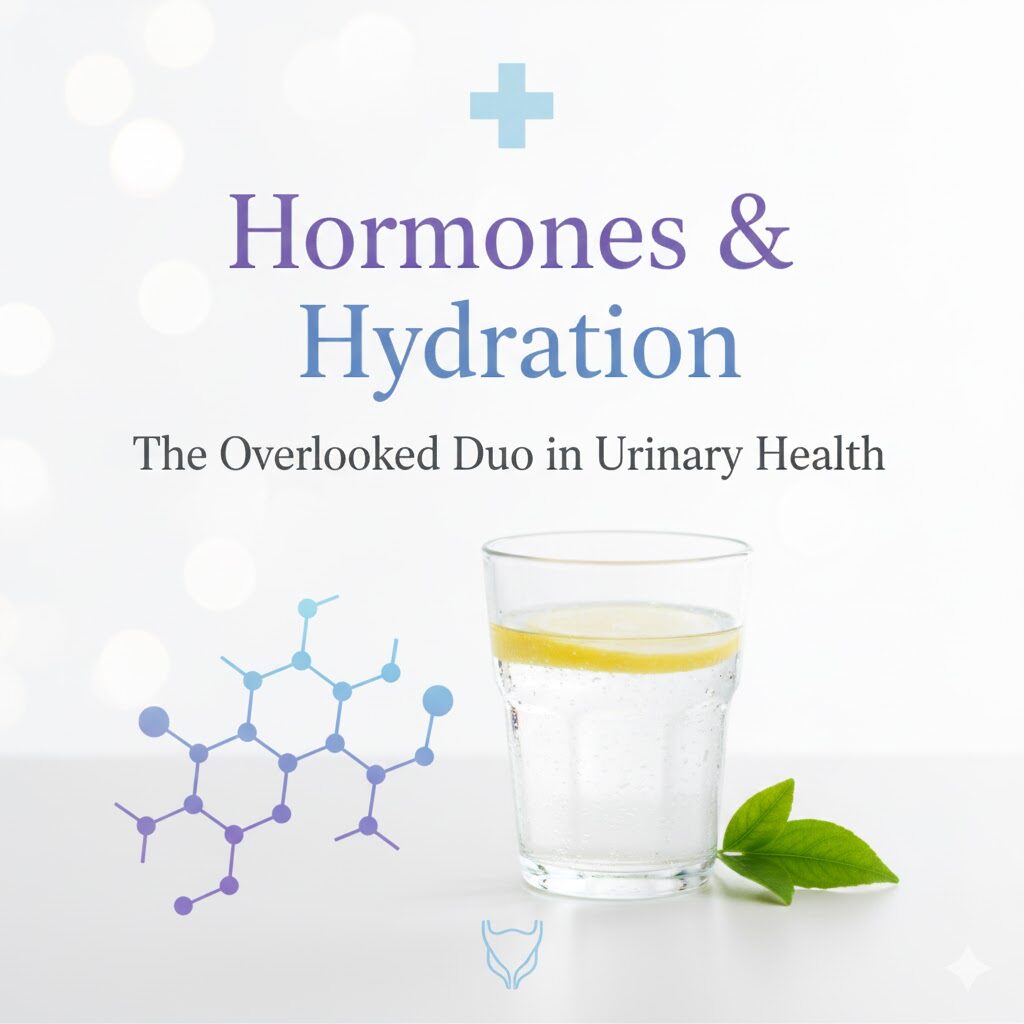When we talk about urinary health, the conversation often centers around diet, hygiene, and perhaps exercise. But two critical factors often fly under the radar: hormones and hydration. Individually, they play significant roles; together, they form a powerful, yet often overlooked, duo that can profoundly impact the health of your urinary system.
Let’s dive into how these two elements interact and what you can do to optimize your urinary well-being.
The Hormonal Influence on Your Bladder
Our bodies are intricate chemical factories, and hormones are the messengers orchestrating countless functions, including those of the urinary tract.
Estrogen’s Role: For women, estrogen is a key player. This hormone helps maintain the elasticity, strength, and health of the tissues lining the bladder and urethra. As estrogen levels fluctuate, particularly during perimenopause, menopause, and even postpartum, its protective effects can diminish. This can lead to:
- Thinning of the urethral and vaginal tissues: Making them more susceptible to irritation and infection.
- Weakened pelvic floor muscles: Contributing to stress incontinence (leaking urine when coughing, sneezing, or laughing).
- Increased susceptibility to UTIs: The change in vaginal pH due to lower estrogen can alter the bacterial balance, making UTIs more common.
Testosterone and Prostate Health: In men, testosterone and its derivatives are crucial, especially in relation to prostate health. An enlarged prostate (BPH) can put pressure on the urethra, affecting urine flow and bladder emptying. Hormonal changes, particularly age-related shifts, are central to the development and progression of BPH, directly impacting urinary function.
Other Hormones: Cortisol (the stress hormone) can also indirectly affect bladder health by influencing inflammation and immune response. Thyroid hormones can impact metabolism and nerve function, both of which can have subtle effects on urinary control.
The Power of Proper Hydration
It sounds simple, right? Drink water. But “proper hydration” is more nuanced than just chugging a gallon a day. It’s about consistent, balanced fluid intake throughout your day.
Why Hydration is Your Bladder’s Best Friend:
- Flushing Toxins and Bacteria: Adequate water intake helps dilute urine and ensures a steady flow, effectively flushing out bacteria and waste products from your bladder and urinary tract. Stagnant, concentrated urine is a breeding ground for infections.
- Preventing Kidney Stones: Staying well-hydrated is crucial for preventing kidney stones. Water helps keep stone-forming minerals diluted, making it less likely for them to crystallize and form stones.
- Supporting Bladder Function: While it might seem counterintuitive for those with overactive bladder symptoms, under-hydration can actually worsen irritation. Highly concentrated urine can be very irritating to the bladder lining. A good fluid intake keeps urine at a healthy dilution.
- Maintaining Overall Health: Beyond the urinary system, proper hydration supports every bodily function, from circulation to nutrient transport, all of which indirectly contribute to a healthy environment for your bladder.
The Interplay: When Hormones and Hydration Collide
Here’s where the “duo” truly shines. Hormonal imbalances can make your urinary tract more vulnerable, and insufficient hydration exacerbates these vulnerabilities.
- Low Estrogen + Poor Hydration = Recipe for UTIs: If declining estrogen has thinned tissues, and you’re not drinking enough, bacteria can more easily adhere and multiply in a concentrated, less-flushed urinary tract.
- Prostate Issues + Poor Hydration = Worsened Symptoms: For men with BPH, not drinking enough might seem like a way to reduce trips to the bathroom, but it can lead to more concentrated urine, bladder irritation, and potentially make incomplete emptying worse, increasing the risk of infection.
- Electrolyte Balance: Hormones (like ADH, aldosterone) regulate water and electrolyte balance. While rare, extreme electrolyte imbalances can affect nerve and muscle function, potentially impacting bladder control.
Practical Steps for Optimal Urinary Health
- Prioritize Hydration:
- Aim for consistent water intake throughout the day. Listen to your body’s thirst cues.
- Consult your doctor for personalized fluid intake recommendations, especially if you have existing health conditions.
- Reduce sugary drinks, excessive caffeine, and alcohol, as these can irritate the bladder or act as diuretics.
- Talk to Your Doctor About Hormones:
- If you’re experiencing urinary symptoms and are undergoing hormonal changes (menopause, perimenopause, postpartum), discuss this with your healthcare provider.
- Hormone Replacement Therapy (HRT) or local estrogen therapy (for women) can be very effective in restoring urinary tract health and reducing UTI recurrence.
- For men, discuss prostate health and hormonal considerations with your Urologist.
- Strengthen Your Pelvic Floor:
- Kegel exercises can help strengthen the muscles that support your bladder and urethra, improving control and reducing leakage.
- Consider seeing a pelvic floor physiotherapist for personalized guidance.
- Maintain Good Hygiene: Always front-to-back wiping for women, and showering after exercise can help prevent bacterial spread.
- Listen to Your Body: Don’t ignore persistent urinary symptoms. Early intervention is key.
Conclusion
Urinary health is complex, but by understanding the critical interplay between hormones and hydration, you gain powerful tools for prevention and management. Don’t overlook this dynamic duo. By giving your body the hormonal balance it needs and the consistent hydration it craves, you’re paving the way for a healthier, happier urinary system.

